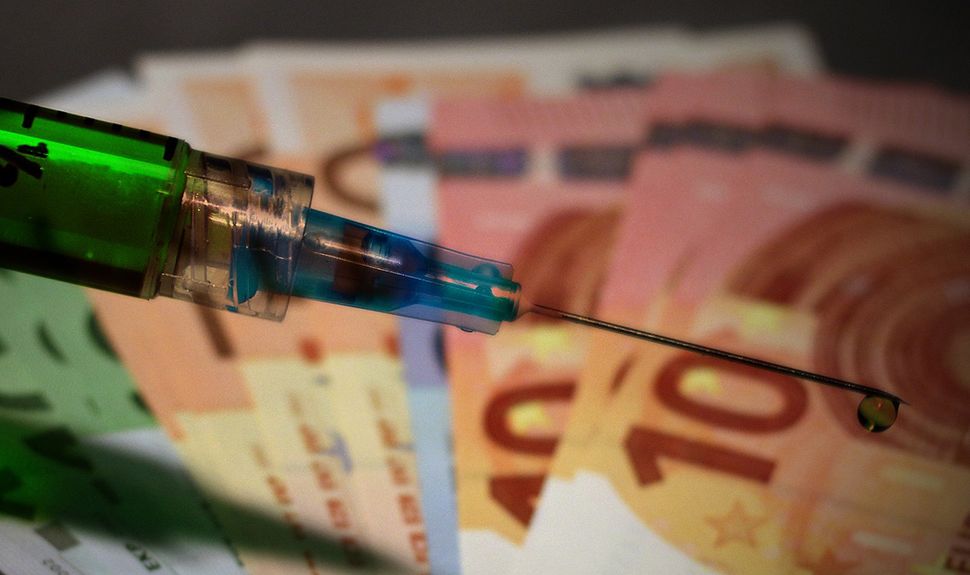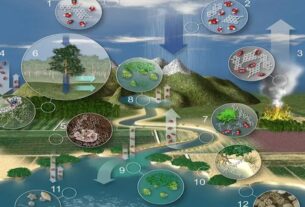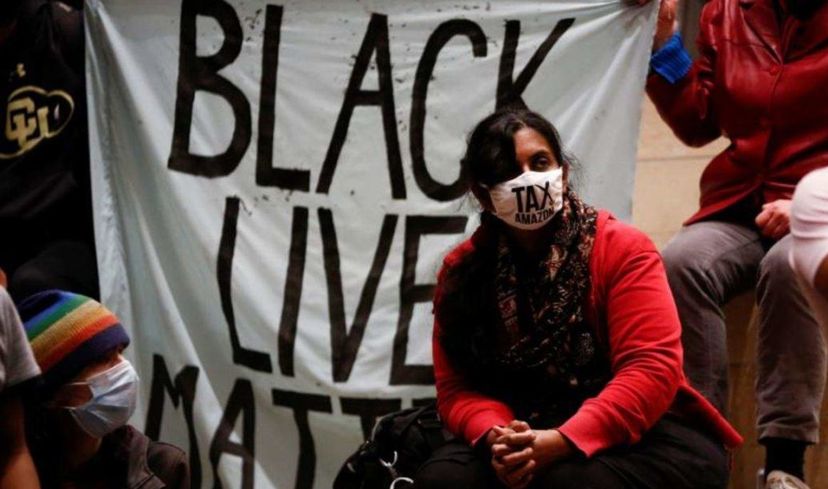Nof Azulay is a member of Socialist Alternative (England, Wales & Scotland).
It was recently announced by a news release that Pfizer and BioNTech have developed a vaccine for Covid-19 that showed it was 95% effective in preventing the disease. Moderna, another pharmaceutical company, announced it had developed a vaccine using a similar technology with 94.5% effectiveness. AstraZeneca — Oxford vaccine developers, also said their data indicates that their vaccine is up to 90% effective. All these companies are finishing phase 3, which includes clinical trials in tens of thousands of volunteers, a phase that normally takes years. There are eleven companies overall that are in late-stage trials before authorisation. The high percentage of effectiveness is also in contrast to many vaccines that are already approved to use, such as the Flu jab which is 40%–60% effective.
This had been received with a sigh of relief amongst millions of people, fearing for themselves and their loved ones. The virus took a high toll, with 1.3 million people dying as a result of contracting it.
The vaccines are not yet authorised but there are assumptions the US FDA (the Food and Drug Administration) in an emergency act may authorise one of them later this month after the recommended two months of safety data has been collected. If it’s authorised it will still take some months and even years before the vaccine will be available for the broader public in most of the advanced capitalist countries. By the end of the year potentially 15 to 20 million people could be immunised.
Yet, there are still important unresolved questions. For example, for how long immunity would last, how effective the vaccine is for new strains and mutations of the virus, how accessible it will be for the wider public and also if there is a significant disadvantage for the poor in the neocolonial world that needs to be addressed.
There are also two other vaccines authorised to use in Russia and China. However, trials involved far fewer participants before and data is missing. For example, the Sinovac Biotech vaccine that was approved to be used in China, had data released only from the first and second phases of clinical trials (that included up to 600 volunteers) and the success rate hasn’t been published. Lack of transparency had been an issue for all of the big pharmaceutical companies that announced success and data hasn’t been released in peer review research but in press releases.
Record-breaking speed
If any of the vaccines will be approved to use, this will be a record-breaking fast result. Normally it takes 10 to 15 years to develop a vaccine if at all, and the fastest vaccine ever made took four years from research to production. However, research on different types of coronavirus had been taking place for decades as in the last 20 years there have been two outbreaks of different types of coronavirus (SARS and MERS). An available treatment or a vaccine for any of these could mean we would have had a vaccine available at a much earlier stage.
As we explained in May this year: “While research was conducted in order to deal with those types of Coronavirus, it was stopped before reaching clinical trials in humans because the scientists involved “tried like heck to get investors or grants” but “could not generate much interest” as the outbreaks had ended. The lack of interest was found to be fatal and is now crucial in this pandemic. As professor Jason Schwartz told the Atlantic: “Had we not set the Sars vaccine research program aside, we would have had a lot more of this foundational work that we could apply to this new, closely related virus.”
Pfizer/BioNTech and Moderna vaccines
The most promising candidate for the Covid-19 vaccine is the one developed by Pfizer and BioNTech. The first is a big-pharma giant that made £52 billion in profit just in the last year.
According to analysts at the US investment bank Morgan Stanley, Pfizer and BioNTech will make £9.8 billion in sales next year. Its agreement with the US government is one of supplying 100 million doses at a price of $39 dollars for two doses, with the option to supply another 500 million under ‘new terms’, which most likely means on a rip-off price. The EU has also ordered 200 million doses and the UK ordered 40 million.
The second candidate, Moderna, also plans to sell the vaccine, has priced its vaccine at $32 to $37 a shot. This in contrast to other pharmaceuticals that promised not to make profit during the pandemic.
About 82% of the Pfizer vaccine stocks up to the end of next year have already been hoarded by rich countries such as the UK, US, EU, Japan and Canada. Collectively these countries represent just 14% of the global population, which shows this health crisis is far from being over.
Lack of collaboration and “vaccine nationalism”
Throughout this pandemic there was a lack of an international collaboration, sometimes even within the same blocs, such as countries within the EU or tensions between the federal government and the states in the US. This was reflected in stockpiling PPE and medical treatments for Covid-19. In the case of developing a vaccine it’s not much different.
This was demonstrated very explicitly In September this year. Thom Tillis, a US Republican Senator introduced the America First Vaccine Act, which if legislated means pharmaceuticals that received money from the federal government will be prevented from exporting vaccine doses outside of the US until home demand is met. Pfizer for example received £1.47 billion for 100 million doses from the Operation Warp Speed (a US federal initiative). However, despite this sounding like a crude “Trumpist” approach, in practice it means nothing new. A similar approach was taken in 2009 when countries that could produce the H1N1 Flu vaccine refused to export doses until they met domestic demands.
Hoarding vaccines, medical equipment and treatments for Covid-19 shows the failure of capitalist big pharma and the capitalist governments that finance them in dealing with this health crisis.
If a vaccine is approved, having the virus continuing to spread in other countries will be devastating for workers and the poor people everywhere. Many will have limited access to the vaccine at least in the first half of 2021, even in the richest countries. This means the level of infections and the scale of the pandemic will decrease, but the health crisis will continue.
This is a serious obstacle in the war against the virus. In such a severe health crisis, there is an urgent need not only to develop a vaccine but also to have a mass production and distribution. But capitalist governments or big pharma being willing to work together is not the only thing required to achieve this. Such collaboration would mean the complete sharing of data, research conclusions, as well as practical collaboration. However, under the capitalist system – in which pharmaceutical companies are among some of the largest profit-making private companies in the world – the race to find a vaccine is driven by power, prestige, and, most of all, profit. Each company hopes to be the first to “cash in” and is desperate to do so before their rivals. There is therefore a direct financial disincentive for such companies to collaborate – lest they risk being beaten to the finish line and lose out on the ability to be the sole manufacturers and suppliers of a patented vaccine once one is produced.
The parasitic character of big pharma
Pharmaceutical companies have received billions of pounds of taxpayers’ money as an “incentive” to invest in developing a vaccine without any commitment to transparency, details about the cost of the clinical trials, the production of doses, publishing data. etc. It’s also not clear whether companies who failed to develop a vaccine will get to keep the billions that were poured on them. In addition, another important question will be if successful candidates are prevented from monopolising their vaccines via the use of patents. So far the six front runners of the vaccine candidates received over 12 billion dollars of public funds.
Despite the huge public funds big pharma receive, the deals with pharmaceuticals are often unknown and discrete to the wide public. What’s been revealed so far has been worrying. Doctors Without Borders (MSF) reported about a deal with AstraZeneca:
“AstraZeneca has committed not to profit off any COVID-19 vaccines ‘for the duration of the pandemic’ and to sell the vaccine at cost, in a deal with Oxford University. However, another deal to develop a COVID-19 vaccine with Brazilian public research body Fundação Oswaldo Cruz (Fiocruz), recently revealed that AstraZeneca has given itself the power to declare the pandemic over as soon as July 2021. This means that, after July 2021, AstraZeneca could charge governments and other purchasers high prices for a vaccine that was entirely funded by public money.”
This lack of transparency fuels distrust and scepticism amongst many. A particularly vocal minority even outright opposes the idea of a vaccine. However, avoiding treatment and denying the scope and seriousness of the virus is not the solution but will lead to a continuation of the currently horrendous situation facing healthcare workers in particular, along with those groups most vulnerable to the virus in society. Socialists fight to nationalise the pharmaceutical companies, and for them to be run according to the incentive of fulfilling health needs, not profit, under full democratic and transparent control by workers. Read more about our response to the anti-vaxxers movement here.
‘Equitable distribution’ in the neocolonial world
So what’s been clear so far is that the richest economies were able to secure the highest share of vaccines, which puts the majority of the world population at risk. Proposals by world health organisations aren’t providing a real solution.
In April, Gavi (formerly Global Alliance for Vaccines and Immunisation), the World Health Organisation and Coalition for Epidemic Preparedness launched COVAX. This a facility which has the stated aim of pooling the purchasing power of countries while giving funding to pharmaceuticals. In return, participating countries will get a minimum portion of vaccines covering initially 3% and finally 20% of their populations. As of 9 November, 94 countries have contracts with COVAX. So far COVAX collected £2 billion and managed to secure 700 million potential doses with the aim to reach 2 billion by the end of 2021.
Initially COVAX promised to provide free vaccines to the poorest countries; however, in September, Gavi’s board decided they should be sharing the cost and pay up to $4 for two doses.
Having an authorised vaccine is not the end of the story. The distribution of the Pfizer vaccine, for example, requires an ultra-cold chain-storage at -80C. Lack of facilities to store and transport the doses, and staff trained to use them is also something that has to be taken seriously. If even countries like the UK will most likely be unable to take on the burden of storage and distribution on a mass scale due to decades of underfunding, outsourcing and privatisation, then we can only begin to imagine how the poorest countries exploited by imperialism will be able to cope.
The pneumococcal vaccine
COVAX’s model is based on Gavi’s initiative in 2005 in regards to the pneumococcal vaccine. A vaccine was available in 2000 but was way too much expensive for poorer countries to purchase.
The idea was to give incentives for giant pharma, committing for their investment to be covered, In return for a guarantee from the vaccine-makers for a lower price for a certain period. The model was similar to the one of COVAX and was described as ‘advance market commitment’.
As a result, a new vaccine was developed and the price of the pneumococcal vaccine was less expensive. Yet, the big pharma companies still get subsidies from Gavi, without a guarantee to reduce the price of the vaccine, even though a cheaper option is available. This is while these companies made almost $50 billion in profit from this vaccine in the last decade.
It is not only that these companies still didn’t meet the high demand. The patent system stopped the vaccine being produced on a higher scale. Pharmaceuticals don’t want to share their patented vaccines as they wouldn’t want to lose their opportunity to make profit. This system has to go. Not only does big-pharma receive big public funds, but they also have no commitment to sharing their research data.
This model exposes the parasitic character of big pharma. Pharmaceutical companies have no interest in developing a vaccine because of the profit guarantee, but they’re also relying on external funding (many times public funding) and demand all of their costs are covered. Their colossal profits will not stop them from charging high and unaffordable prices once the peak is over.
Also, Covid-19 vaccination in the neocolonial world is very important, but there are some very worrying figures about deaths as a result of other vaccine-preventable diseases. Lack of vaccines for diseases like Hepatitis B, Measles, Mumps, Polio, Yellow Fever, Tetanus resulted in deaths of over 2.6 million people in 2017; this is the double amount of all people that died of Covid-19 worldwide.
Conclusion
Unlike the neoliberal and capitalist mantra of ‘free market’ and ‘competition’, the pharma industry is an oligopoly, which means it’s dominated by a very small number of firms. There are very few pharma companies that can actually produce drugs and vaccines on a mass scale. Many of these corporate giants actually produce medicine and vaccines that they didn’t develop in the first place but still get huge subsidies from the state.
The so-called “no-profit pledges” from pharmaceuticals don’t hold water when these companies refuse to disclose the costs of vaccine development and production.
In regards to the Covid-19 vaccine, the least that should be demanded is for free access to all research data and scrap all intellectual property rights. There is absolutely no reason why production and development of life-saving treatments and vaccines should be limited and kept in secret because of the profit incentive for companies. The choice between saving lives or making profits should be clear. But under capitalism profit always comes first which shows we need to go beyond these demands and take big pharma under public ownership. The worrying conditions in which companies commit to a price only for a certain period, also raises a big question about its availability for the long term.
Nationalisation of the pharmaceutical companies to be run under democratic and transparent workers’ control will also be in the interest of guaranteeing that a vaccine and other medical treatments will be accessible and free for all who need them.
There needs to be a democratic, socialist plan for production which can retool the economy to produce the vaccine on the scale needed to protect the world’s population from this deadly virus.
In other words, the task of overcoming this virus requires socialist measures on an international scale. We fight for and defend all reforms which increase the accessibility of medicine and the widest expansion of free healthcare. But the only way to guarantee a future where public health is put before private profit is to build a movement that can replace this crisis-ridden capitalist system with a socialist society, run by and for working-class people.




